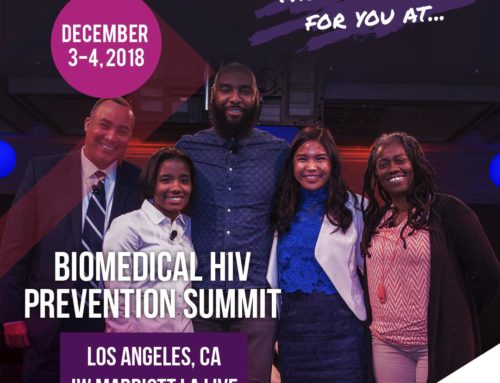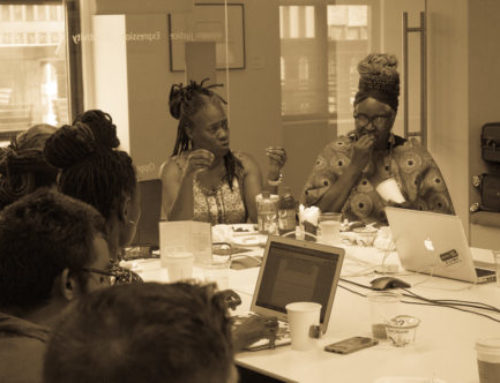By Reverend Damon A. Powell, Ph.D.
Recruitment and partnership with Black-American churches and sororities can serve as an aide in increasing HIV testing and awareness within Black-American communities.
Although Black-American churches and sororities would appear to be strikingly different institutions at first glance, they actually have a lot in common historically. Both institutions have their genesis in the need to help uplift and support Black-Americans within and without their respective organizations. Both hold the values of justice, communal support, and service to those in need as central to their mission and mandate.
For Black-American churches this mandate can be found within a variety of biblical mandates which stress the need to aid the sick, fight for the oppressed, and serve greater humanity.[1] These mandates can be found throughout the bible, and have become an integral part of the Black-American church’s emphasis upon self-help and social justice.
Many Black-American sororities were founded in order to meet the needs for mutual aid and solidarity among Black-American women as they bonded together to resist the injustices and degradations they faced as women of color on college campuses. In addition, many of these organizations founding (and current) members were deeply involved within the life of the Black-American church, and have embedded biblical ideals concerning justice and service within the rituals and ethos of their organizations.[2]
In the United States Black-American women represent the fastest growing population of newly infected persons. In addition to this rapid increase, Black-American women are more than 21 times more likely to die from AIDS than non-Hispanic white women. HIV and AIDS has now become one of the primary killers of Black-American women between the ages of 25 and 34.[3] If we are going to reach them we must begin to think outside of the boxes in our attempts to meet them where they are.
What better places to do so than within organizations in which Black-American women can be most readily found? A Black-American sorority is an organization controlled and run by Black-American women; but what many people fail to realize from the outside looking in- is that Black-American churches are predominantly composed of women as well. The reasons for their lack of prominent visibility, and numerical leadership proportionate to their numbers needs to be addressed- but they are present nevertheless.
If we want to be effective in our efforts at testing and awareness among Black-American women we must reach out to these organizations. It has been my experience that the leaders of both organizations are more than willing to become involved in some capacity if approached and made aware of the seriousness of the epidemic. At the same time, many of these leaders are not sure what to do, or how to begin. This means we must reach out personally to create an opportunity for developing a working relationship. When we do so, there should be brief but compelling statement of the facts surrounding HIV/AIDS and Black-American women, along with a few small but concrete suggestions for action which will empower them to become involved easily and quickly.
In my experience this is best achieved by not engaging in issues of ideology or doctrine…but to begin by focusing upon the effects of HIV as a growing public health crisis within the Black-American community-hence the need for testing and screening. Continue to develop a primary relationship with the leadership while enlisting the aid of a secondary point of contact within the organization that will have access to the leadership. In a church setting this will probably be someone whom the pastor designates or has traditionally dealt with health related issues within the congregation. Similarly, most sororities have designated Social Action committee heads who can serve as a secondary point of contact.
As you continue to reach out to the leadership with and through your secondary contact, the secondary point of contact can be further educated and invited to use their knowledge to create awareness in other members of the organization. This will set the stage for more effective and comprehensive involvement to begin. Be consistent and help them to develop a plan for engagement that is timely, relevant and consistent but not overwhelming. The going can sometimes be slower than you might prefer, but the development of growing awareness and education within the community can serve as a solid framework well-worth the results.
1 There are far too many biblical references to be listed here. But I would recommend: Ex. 2.23-25; Dtr. 24.17; Psalm 41.1…from the Old Testament; and Mt. 25.34-41; Lk. 14.12-14 and others from the New Testament.
2 For more detailed information I suggest an examination of the origins and mission statements of a few Black-American sororities such as: www.deltasigmatheta.org or www.sgrho1922.org.
3 This statistic was obtained from the United Sates Department of Health and Human Services, Office of Women’s Health. www.womenshealth.gov/minority/africanamerican/hiv.cfm accessed June 25, 2010.
Bio:
Reverend Damon Powell, Ph.D. a is theologian, visual artist, and HIV/AIDS activist. He has spent the last 5 years serving the needs of PLWHIV. Rev. Powell currently resides in Oakland, CA where he provides Case Management services through AIDS Project of the East Bay; promotes his painting and research, and leads the HIV/AIDS ministry of Brookins AME Church.




